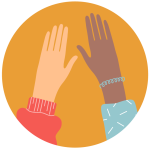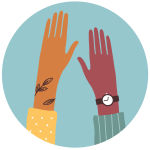Faculty Focus Group Guide

We will not be video or audio recording this session. However, we will be taking detailed notes. We ask that during this focus group, you adhere to the same community agreements we used during our past training sessions.
This will be a moderated session. Participation is voluntary. This session will last approximately one hour. We encourage everyone to participate, as we hope to hear about all of your experiences with our simulation curriculum. In the interest of time, we may have to redirect conversation or interrupt a story. Likewise, we may need to directly invite some individuals to join the conversation. If asked a direct question, you are allowed to decline.
If at any time the content of this discussion becomes traumatizing or harmful to you, you may leave.

 Since it has now been a few months since our simulations and training, we would like to better understand your perspectives on their efficacy and whether you have noticed any culture changes in the department or changes in behavior in yourself or others since then. We understand that this, as a single intervention, has limitations to how much change it can make, however we would like to capture any observations you may have had.
Since it has now been a few months since our simulations and training, we would like to better understand your perspectives on their efficacy and whether you have noticed any culture changes in the department or changes in behavior in yourself or others since then. We understand that this, as a single intervention, has limitations to how much change it can make, however we would like to capture any observations you may have had.
Though some questions may sound similar to those we have asked in the past, we acknowledge that you may have had other experiences in the interim that have shaped your perspective on your experience with the simulation and training.
Evaluation:

- What do you remember about the training session?
- What do you remember about the simulation sessions?
- What emotions did the training experience engender for you?
- What emotions did the facilitations engender for you?
- (Just like in our trainings, we’re going to use a plus delta framework here) What went well in our trainings?
- How can we change our training to be more helpful/to better prepare you to facilitate resident sessions?
Impact:
- The concepts and techniques used in these sessions apply to microaggressions and may also be useful in other realms of interpersonal interactions such as giving feedback, debriefing difficult interactions, and perspective taking. Have you noticed anything you were exposed to in the training or facilitation sessions having an impact?
- What impact have the trainings and facilitations had on your behavior?
- Have you noticed any changes in how you notice or respond to microaggressions since completing the simulation?
- Have you noticed any changes in how trainees you work with respond to microaggressions since then?
- Have you noticed any changes related to the culture of interrupting microaggressions in:
- the residency program
- the Department of Pediatrics
- UW Health
- How do you think this program fits in to current and future antiracism work within the Department of Pediatrics?
- What next steps do you think would help promote more robust culture change in this domain?
- For those who did not receive training like this during residency/fellowship, what was it like to learn and use these skills as faculty?

